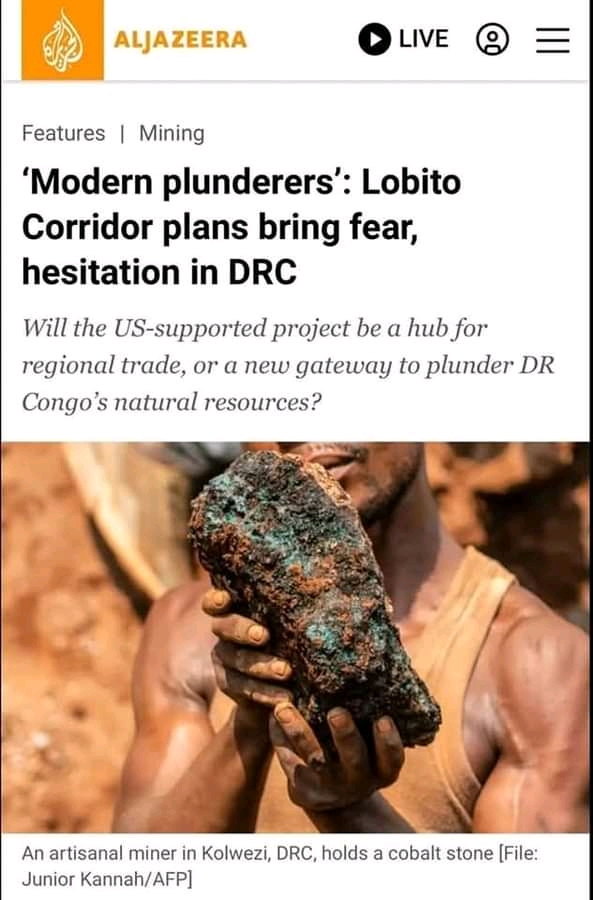‘Modern plunderers’: Lobito Corridor plans bring fear, hesitation in DRC
Will the US-supported project be a hub for regional trade, or a new gateway to plunder DR Congo’s natural resources?Goma, Democratic Republic of the Congo – From the Port of Lobito in Angola, along Africa’s Atlantic coast, runs a 1,300km (800-mile) stretch of railway that passes through neighbouring Zambia and resource-rich Democratic Republic of the Congo (DRC).
In DRC, the Lobito Corridor links the mining provinces of Tanganyika, Haut-Lomami, Lualaba and Haut-Katanga – home to some of the world’s largest deposits of critical minerals like cobalt and copper, earning it a fair share of international attention in recent years.
In early December, on the sidelines of a visit to Angola, United States President Joe Biden held talks with some of his African counterparts on the Lobito infrastructure project – a multi-country agreement that aims to develop connectivity between the Atlantic and Indian oceans and provide speedier access to Africa’s minerals for the US and European markets.
But in Congolese towns and cities along the regions to be connected to the railway project, there are mixed feelings and simmering fears.
The DRC has the world’s largest cobalt reserves and its seventh-largest copper reserves.
While some Congolese believe the Lobito project will be a beneficial trade hub between African countries, others fear it is merely a gateway to facilitate the further plundering of the region’s natural resources.Claude Banza lives in the city of Kolwezi in Lualaba, one of the key points along the Corridor’s route, which hosts vast mines that rights groups have called out for human rights abuses.
“We lead a life of misery, we have no jobs,” Banza told Al Jazeera.
“This Lobito project is a lifesaver for us,” he said, hoping the infrastructure developments can help bring more opportunities and hope for local communities.
‘Modern plunderers’: Lobito Corridor plans bring fear, hesitation in DRC
